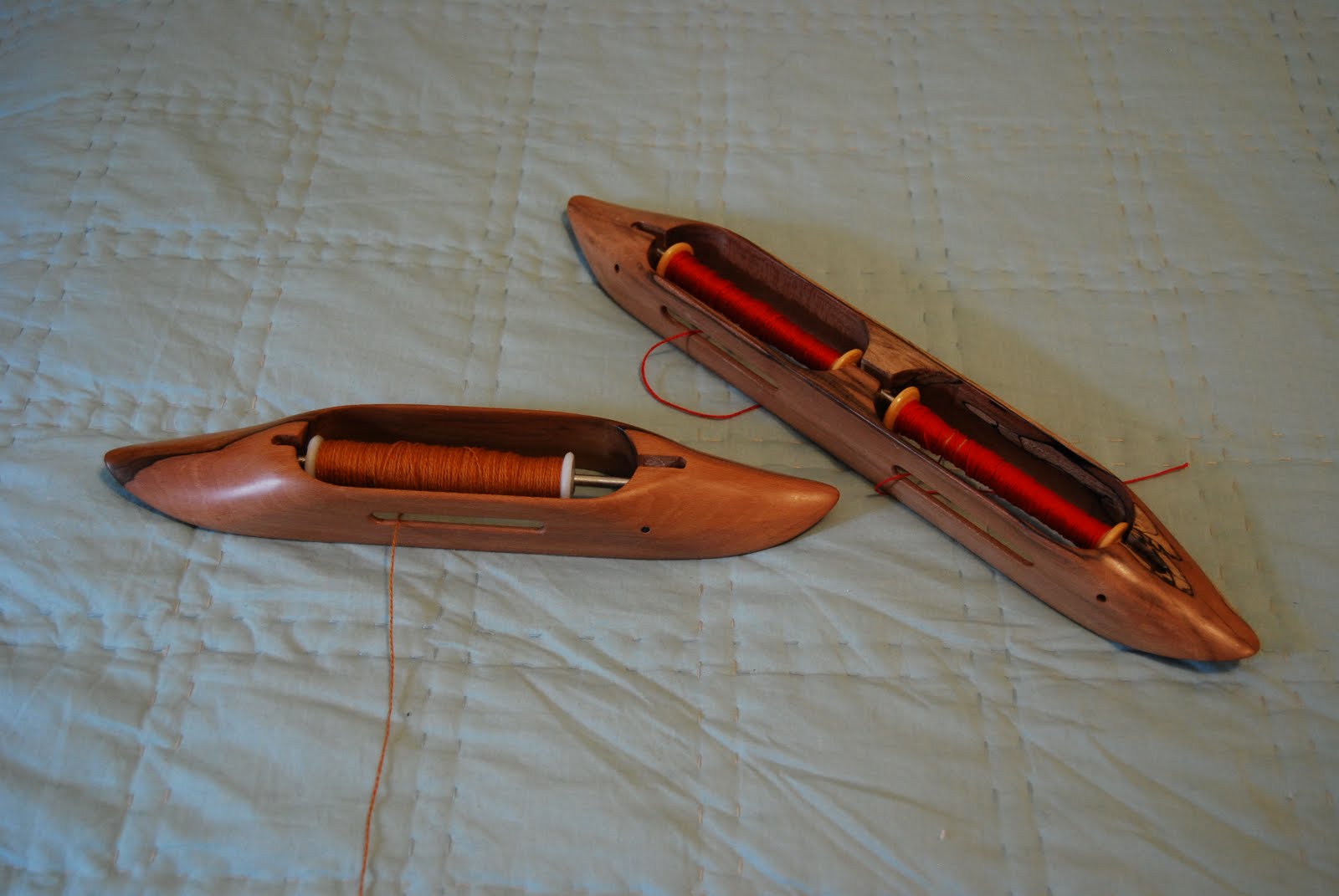Weaving takes an incredible amount of stuff to get to the point that you can put a warp on a loom and weave it off. Warping board, cone holder, heddle hook, reed hook, temple, bobbins, bobbin winder, fringe twister, boat shuttle, ski shuttle, stick shuttle,,,,, The list goes on and on and on. Then there is the yarn, different colors, different sizes, different fibers. All of this is to say is that it takes serious coin to be a weaver. It is very different than knitting a sweater where you need knitting needles, yarn and a pattern and you are ready to go. I was lucky enough to have started weaving over 40 years ago and accumulated a fair number of weaving tools at that time, when costs were pretty low. My 45" 4 harness loom cost $350 new in 1972, today that loom would run over $2,000. But instead of going broke buying tools, I have a DH who is a superb wood worker and he has made me quite a variety of tools, some patterned after the standards and some of his own invention.
 For Christmas this year, he made the beautiful boat shuttle to the left. It has an open bottom and holds the Schacht size bobbins and feeds easily through the shed. It came from a dead dogwood tree that DH cut down at a house he was remodeling in Brevard. Since I weave in two locations that are 2000 miles apart, I can never have enough boat shuttles. I am currently weaving crackle towels that have 4 color changes and so I am using every one of my 4 boat shuttles in Montana.
For Christmas this year, he made the beautiful boat shuttle to the left. It has an open bottom and holds the Schacht size bobbins and feeds easily through the shed. It came from a dead dogwood tree that DH cut down at a house he was remodeling in Brevard. Since I weave in two locations that are 2000 miles apart, I can never have enough boat shuttles. I am currently weaving crackle towels that have 4 color changes and so I am using every one of my 4 boat shuttles in Montana.Late last year, I was working on a project that required a double yarn for the pattern weft and winding two threads on a bobbin does not always lead to both yarns pulling evenly out of the shuttle. The double boat shuttle solves this problem by winding two separate bobbins. This shuttle is also made of dogwood, which has been used for making weaving tools for ages because of it's hardness and close grain.
Wolf Trap Snuggy
 This ingenious little piece of wood snugs up my Wolf Trap on the Schacht Baby Wolf Loom. Without it the Wolf Trap was always falling off the front beam.
This ingenious little piece of wood snugs up my Wolf Trap on the Schacht Baby Wolf Loom. Without it the Wolf Trap was always falling off the front beam.The reed holder arrived unanounced in my studio, I think because I was always borrowing DH's clamps whenever I wanted to sley the reed. As a front to back warper, I usually sley the reed on a table, instead of on the loom. I have used clamps, soup cans or whatever was on hand to hold the reed in an upright position.
Cross Holder
Another tool for warping, just a small block of wood with 4 nails to hold the cross. I can walk away from warping and not loose the cross. This little invention came from Barbara Miller of the Western North Carolina Fiber/Handweavers Guild.
Nostepinne
Scandinavian tool for winding balls. I have used this for unwinding sweaters purchased from thrift stores.
Inkle Loom
Gary made this inkle loom in a day, when I thought I would be taking an inkle weaving class. Unfortunately the class was full, but fortunately I got a great little loom for making bands.








